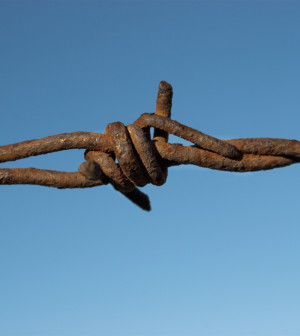- Could Your Grocery Store Meat Be Causing Recurring UTIs?
- Are You Making This Expensive Thermostat Error This Winter?
- Recognizing the Signs of Hypothyroidism
- 10 Strategies to Overcome Insomnia
- Could Artificial Sweeteners Be Aging the Brain Faster?
- Techniques for Soothing Your Nervous System
- Does the Water in Your House Smell Funny? Here’s Why
- Can a Daily Dose of Apple Cider Vinegar Actually Aid Weight Loss?
- 6 Health Beverages That Can Actually Spike Your Blood Sugar
- Treatment Options for Social Anxiety Disorder
Cluster Headaches Can Defy Diagnosis But Respond to Treatment

Cluster headaches are extremely painful, but treatable and preventable, one neurologist says.
“Because they are so rare, they are often misdiagnosed as migraines or allergies and aren’t treated appropriately,” said Dr. Juline Bryson, an assistant professor of neurology at Wake Forest Baptist Medical Center, in Winston-Salem, N.C.
Cluster headaches are short but extremely painful headaches that occur in clusters, usually at the same time of the day and night for several weeks, according to the U.S. National Institute of Neurological Disorders and Stroke.
They occur on one side of the head, often behind or around one eye, and may be preceded by a migraine-like aura and nausea. The pain can last for up to three hours. It often wakes people from their sleep.
Other symptoms include tears, runny nose or congestion, sweating and redness on one side of the face.
“In most cases, this kind of headache is very treatable once it is correctly diagnosed. During an episode, we can inject a drug used to treat migraines, which can provide relief within minutes. And there are several drugs available that are quite effective in preventing these headaches,” Bryson said in a medical center news release.
She added, however, that people respond differently to treatment. Some “do have intractable headaches that can be very difficult to treat,” Bryson said.
Men are three times more likely to get cluster headaches than women. Bryson suggested that anyone with cluster headache symptoms seek out headache specialist.
More information
The U.S. Genetic and Rare Diseases Information Center has more on cluster headaches.
Source: HealthDay
Copyright © 2026 HealthDay. All rights reserved.










